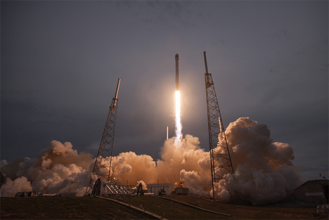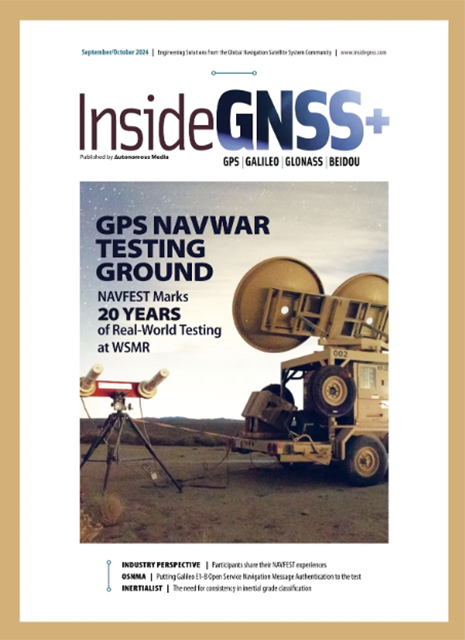The Air Force announced today (April 27, 2016) the award to Space Technologies Corporation (SpaceX) of an $82.7-million contract for GPS III Launch Services.
The Air Force characterized the contract as “the first competitively sourced National Security Space (NSS) launch services contract in more than a decade.” However, a decision last November by the United Launch Alliance (ULA), a joint venture of Boeing and Lockheed, not to compete for this GPS III launch effectively left SpaceX as the only bidder.
The Air Force announced today (April 27, 2016) the award to Space Technologies Corporation (SpaceX) of an $82.7-million contract for GPS III Launch Services.
The Air Force characterized the contract as “the first competitively sourced National Security Space (NSS) launch services contract in more than a decade.” However, a decision last November by the United Launch Alliance (ULA), a joint venture of Boeing and Lockheed, not to compete for this GPS III launch effectively left SpaceX as the only bidder.
Announced by the Space and Missile Systems Center (SMC) at Los Angeles Air Force Base, California, the firm-fixed price, standalone contract requires SpaceX to provide the Government with a total launch solution for the second GPS III satellite, which includes launch vehicle production, mission integration, and launch operations and spaceflight certification. The launch will be the second for the GPS III program and is scheduled to take place from Cape Canaveral Air Force Station, Florida, in May 2018.
Additional contracts will be bid for later GPS III spacecraft.
"This GPS III Launch Services contract award achieves a balance between mission success, meeting operational needs, lowering launch costs, and reintroducing competition for National Security Space missions," said Lt. Gen. Samuel Greaves, Air Force Program Executive Officer for Space and SMC commander.
This is the first of nine competitive launch services planned in the FY 2016 President’s Budget Request under the current Phase 1A procurement strategy, which covers awards with FY 2015-2018 funding. The next solicitation for launch services will be for a second GPS III satellite. According to the Air Force, this award marks a milestone in its ongoing efforts to reintroduce a competitive procurement environment into the Evolved Expendable Launch Vehicle (EELV) program under the direction of Frank Kendall, Under Secretary of Defense for Acquisition, Technology and Logistics.
The Phase 1A procurement strategy reintroduces competition for national security space launch services. Under the Phase 1 strategy, ULA was the only certified launch provider. In 2013, ULA was awarded a sole-source contract for launch services as part of an Air Force "block buy" of 36 rocket cores that resulted in significant savings for the government through FY 2017.
In May 2015, Space Exploration Technologies (SpaceX) was certified for EELV launches resulting in two launch service providers that are capable to design, produce, qualify, and deliver a launch capability and provide the mission assurance support required to deliver national security space satellites to orbit. The certified baseline configuration of SpaceX’s Falcon 9 Launch System to Falcon 9 Upgrade was recently updated for use in National Security Space (NSS) missions.
GPS III is the next generation of GPS satellites that will introduce new capabilities to meet the higher demands of both military and civilian users. The satellite is expected to provide improved anti-jamming capabilities as well as improved accuracy for precision navigation and timing. It will incorporate the common L1C signal, which is compatible with the European Space Agency’s Galileo global navigation satellite system and complements current services with the addition of new civil and military signals.
The Air Force Space Command’s Space and Missile Systems Center, located at the Los Angeles Air Force Base, Calif., is the U.S. Air Force’s center of excellence for acquiring and developing military space systems. Its portfolio includes the Global Positioning System, military satellite communications, defense meteorological satellites, space launch and range systems, satellite control networks, space based infrared systems and space situational awareness capabilities.





